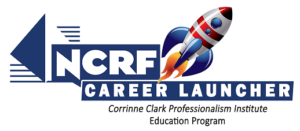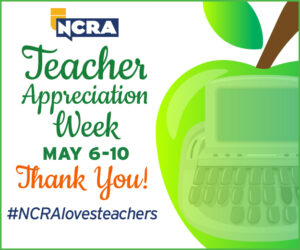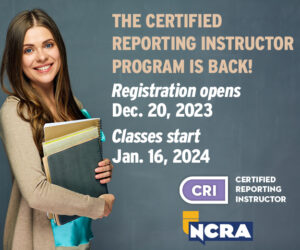By Kay Moody
Many adjectives describe the typical court reporting student: busy, mature, single parent, employed, easily frustrated, second career, and self-supporting. Court reporting students are adults who are involved in many demanding, life-changing, time-consuming, and mentally depleting activities that interfere with their focus and concentration and that can sometimes hinder the time they can spend on skill development.
Adult learners are defined as students who are 20 years old or older; for many years, educators thought adults and younger students learned in the same way. Over the years, educational researchers found there are profound differences between adult learning and that of younger students. As an adult student, you must be goal-oriented and know what you hope to achieve every time you are working on your machine. You must identify goals and objectives for every class and practice session, and you will learn best when you view the potential outcome of each class and practice session. You will progress faster if you manage time for your school-related activities so they fit into your busy life.
Listed below are five critical elements that promote learning for adults: Motivation, Time Management, Reinforcement, Transfer of Learning, and Retention.
- Motivation : The best way to feel motivated is to make every class relevant and meaningful. Don’t think of activities as busy work or nonproductive. You will be motivated when you know the relevance of every course, every class, every assignment, and every practice session. If you can’t identity the objective of an assignment, ask your instructor what the expected outcome or purpose of the assignment is. Insist that your instructors give you immediate, constructive, and specific feedback.
- Time Management: Like most adult learners, you are probably busy and don’t have large blocks of uninterrupted time. Plan time you can practice when your family and friends won’t disturb you: during their favorite TV show, when they’re at school or taking a nap, before and after they’ve gone to bed, etc. You can find ways to squeeze in 5, 10, 15 minutes three times every day for drills, to read back shorthand notes, or for memorizing and reviewing outlines. For instance, if you work full-time, plan to work on non-machine activities during your lunch hour and break time, and, during your commute, visualize writing on your machine while listening to audio tapes. In developing your plan, don’t try to do more than one thing at a given time. Schedule the more difficult tasks early in the day when you’re well-rested.
- Reinforcement: Adult students need constant reinforcement in a variety of ways. Drills are essential for learning, reviewing, and reinforcement of briefs, phrases, multisyllabic words, difficult outlines, etc. Try practicing the same drill for 10 minutes every day until you can write it perfectly! Speed is developed through repetition by hearing the same take over and over again. Read back each take, mark errors and words that caused you to hesitate, and drill on those words. Repeat the selection and continue until you can write it.
You should benefit from every class — even a class in which you wrote poorly because this is when you can identify your weaknesses and develop strengths. Keep a journal to see what you need to review, tape the class, and work out the difficult parts until you master the selection that you wrote poorly.
- Transfer of learning: The fourth element that promotes adult learning is transfer of learning: the ability to apply or use information in a new or different setting. This is the importance of working on drills and how they help students progress. Work on drills that eliminate your weaknesses. For instance, if you had a speedbuilding take that was difficult because it had a lot of proper names, work on writing proper names at least once a day. You can make up a list from names in the newspaper, your address book, the teachers at your child’s school, etc. Once you get used to writing proper names through drill work, transfer of learning will automatically take place when taking dictation. Other drills include briefs, phrases, numbers, alphabets, foreign words, homophones, and word families. Use external memory aids such as a whiteboard or bulletin board, Post-It Notes, and notebooks to help you memorize and remember the correct outlines.
- Retention: The fifth major element that promotes learning is your ability to retain information. This pertains to learning new outlines for difficult words, briefs, and phrases.
Principles of Retention
- Adults retain 10 percent of what they read.
- Adults retain 20 percent of what they write.
- Adults retain 30 percent of what they see.
- Adults retain 50 percent of what they see, hear, and write.
- Adults retain 90 to 100 percent of what they see, hear, write, read, and repeat many times.
To learn and retain new outlines: first of all read a steno outline; write it on your machine; then read the steno that you’ve written, saying it out loud while you read; write the outline again while visualizing the outline in shorthand; continue until going through the steps until you can write the outline with 100 percent accuracy. For additional information and ideas, go to the following website: https://www.memory-improvement-tips.com.
Adults can progress quickly through court reporting school when they use the correct study and practice skills by incorporating the five critical element of effective adult learning: Motivation, Time Management, Reinforcement, Transfer of Learning, and Retention.
Kay Moody, MCRI, CPE, is an instructor for the College of Court Reporting based in Valparaiso, Ind.












